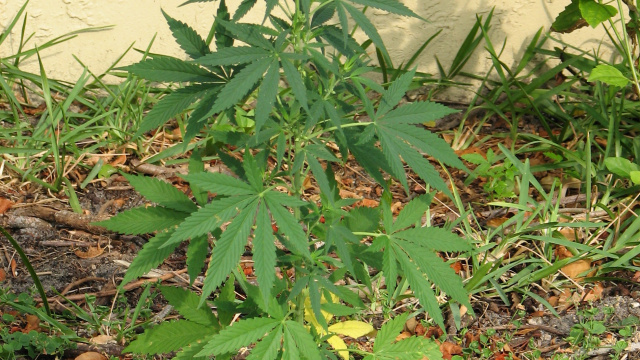 The House Budget Committee isn’t the most august room in Congress, but it commands respect, what with its oil portraits of former chairmen including Leon Panetta, who went on to be Defense Secretary and CIA director.
The House Budget Committee isn’t the most august room in Congress, but it commands respect, what with its oil portraits of former chairmen including Leon Panetta, who went on to be Defense Secretary and CIA director.
But it was the site on Tuesday of a briefing by the National Cannabis Industry Association, which you can think of as the pot trade group. So it’s probably not surprising that one of the questions asked of Rep. Jared Polis, a Colorado Democrat leading the fight for reform of federal marijuana laws, was how many of his colleagues smoked pot.
Five or 10, he guessed. But he noted he’d never seen any smoke. And besides, since the House is made up of so many old members, the number was bound to be small.
It’s a sign of how far the cannabis industry has grown that their leaders are here in Washington, chatting up reporters and fanning out to meet their representatives the same way, say, onion growers might. With marijuana decriminalized in Washington state and Oregon and medical marijuana allowed in 20 other states and the District of Columbia, those who sell and distribute legal weed need a voice in Washington where any number of laws and regulations still treat them like outlaws.
For instance, because of laws designed to keep drug cartels from protecting their financial assets, it’s almost impossible for cannabis dealers to use regular banks for their business, forcing them to carry around bundles of cash as if they were, um, drug dealers.
What’s worse, some dispensaries have had to segregate their cash so it doesn’t smell like pot. Making payroll, buying goods from suppliers, all with cash, is like something from the Middle Ages. The Obama administration has tried to ease some federal banking regulations, but it’s not clear whether that’ll be enough to convince skittish banks — loathe to run afoul of Dodd-Frank, let alone this — to let cannabis dealers open checking accounts or give them loans.
To boot, cannabis dealers are not allowed to deduct their business expenses because of IRS regulations aimed at drug dealers. With an effective tax rate that can run as high as 85 percent, the cannabis industry has won the support of Grover Norquist’s Americans for Tax Reform, which has joined in the fight to repeal the regulation. Any number of other laws are keeping cannabis dealers in the doghouse even as voters have made their voices clear across the country.
While public attitudes about marijuana have moved sharply in recent years — as a group, only voters over 65 believe it should remain illegal — the political climate hasn’t caught up with public opinion. Only a modest number of Congressmen have instituted support for the many bills and laws aimed at treating cannabis sales like any other business.
One of them is Dana Rohrabacher, one of President Ronald Reagan’s White House speechwriters, who represents the beautiful coastline of southern Orange County, Calif. (The Oliver Stone drug movie, Savages, was set in Laguna Beach, part of Rohrabacher’s district.)
Rohrbacher is a longtime surfer, even at age 66, a firebrand conservative and an outspoken critic of “communist China,” who suggested this week that Obama could be impeached over executive actions on health care and immigration. Still, criminalizing marijuana, Rohrbacher said, “is an absolute waste.” He added: “What is freedom all about? It’s about your right to make decisions.” But he concedes his colleagues will likely prove slow to embrace an issue they think would hurt them politically.
To help soften the mood on Capitol Hill, the cannabis trade association asked Celinda Lake, a Democratic pollster, to test public attitudes about marijuana. She found a widespread and growing acceptance of pot legalization, one reflected in other polls and also in popular culture where stoner comedies are blockbuster movies.
The data, though, show that the same forces that suggest the Democrats will do poorly in the midterm elections in November — low turnout among all groups save for the elderly, who lean right — create a climate that could spook some Congressmen from backing a change in the marijuana laws.
Asked if his GOP colleagues might be sympathetic to the argument, Rohrabacher says his fellow Republicans would favor pot reform if it were a secret ballot. Getting them out in the open won’t be easy.
Source: Newsweek (US)
Author: Matthew Cooper
Published: March 14, 2014
Copyright: 2014 Newsweek, Inc.
Contact: [email protected]
Website: http://www.newsweek.com



Leave a Reply